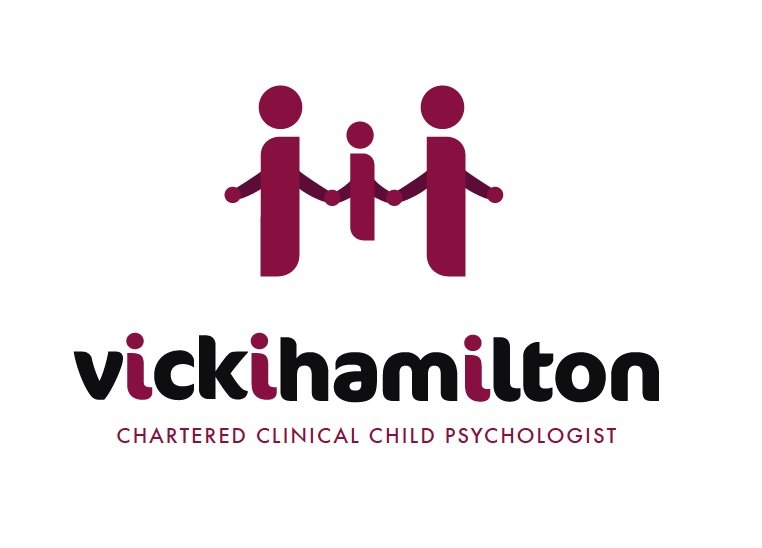Children and Grief: When someone important dies
Loss can be a devastating experience for adults. Dealing with one’s own grief whilst also supporting grieving children can feel overwhelming. Parents and carers often have questions about how best to support children at such times. This post is about how children may experience loss.
Often when children experience a significant and sudden loss, one of the most notable changes is an increase in anxiety. Such anxiety can often feel particularly overwhelming and distressing if it is also accompanied by a number of other changes and disruptions. Whenever possible, it is good practice to provide consistency and keep children in their usual routines.
Children may also report feelings of sadness and difficulties maintaining concentration and focus. This often happens when children are thinking about absent ones and may do so even if they are not always talking about the people they have lost. Again, this is positive in terms of the process of grieving. It is important that children have time to reflect and remember, as well as times when distraction is appropriate. Rituals, anniversaries and remembrances can all help children in terms of giving them an opportunity to express sadness and come to terms with their sense of loss.
Memory boxes can be a useful aid in that children can compile boxes or books in which they store special memories of people that they have lost. Sudden loss, particularly loss of a significant carer can have a big impact on children and as a result they often approach being able to accept and process the magnitude of what has happened much more slowly.
Children will often worry about whether they were loved by their parents following a separation or loss. They may feel a sense of abandonment or that they failed as children. They can also report feeling deserted and let down by their parents. These feelings and worries may well emerge in time but providing children are able to talk about them in an open way with supportive adults they can be addressed as they emerge.
Following sudden or violent deaths it is really important to work through any avoidance of talking about what has happened to loved ones so that grieving does not get stuck. It is therefore important to talk about how the parents died, however difficult this is. Winston’s Wish provides a number of resources for bereaved children and their carers (https://www.winstonswish.org/ . Whilst adults often find it very difficult to know the right words to use with children in traumatic situations, research suggests that children who are told the truth about what has happened, particularly with violent and sudden deaths, are generally less vulnerable to anxiety and depression.
Although children who lose loved ones in violent, tragic and unexpected circumstances may be more vulnerable, most children fare reasonably well. Children’s ability to cope with the loss of the significant loved one will, not least, be associated with how the remaining family is able to create a climate in the family where the children can talk about the lost ones over time if they wish to, have their emotional needs cared for, and experience understanding in all areas of their lives.
Developmentally, younger children will often only tolerate short conversations about lost loved ones. Children are generally less tolerant of strong feelings than adults and they have a shorter “sadness span”. Whilst language is the primary means of communication for adults, children may be more comfortable with other forms of expression, e.g. drawing, play and behaviour etc.
Children may also experience periods of longing for lost ones and this can be quite severe at times. Adults need to help the children to tolerate this, tell the children that even though the longing can be strong for a long time, it will eventually hurt less. It is also important that children are told that they do not have to react the same way that grownups do and that they are free to react as they want to, and that nobody will demand or expect that they have to be sad all the time.
As the children get older, they will return to their losses more mature and with more understanding. It is common for children to reflect over losses, seek information about the causes and ascribe new meanings to their own acts or thoughts as well as change the inner images they have of the lost parents. In families with an open communication style where children experience a safe environment with room for their questions, thoughts and feelings, they will gradually develop a new understanding of what happened with increasing age. Conversations about the deaths over time should include the children’s own understanding alongside those of family members. These kinds of conversations help children keep the event in memory and not forget it; help children assess and interpret what happened; correct misunderstandings, fantasies or confusion; help children to handle and regulate their emotions; and provide information about coping strategies and promote the use of these.
Often adults feel uncomfortable about sharing their own sadness or grief in front of children and feel they have to be strong. On the contrary, it is often important that children see important adults showing congruent emotions as a way of modelling that such emotions are okay and not to be feared and showing strategies of self-regulation.
Resources
Grief in Children: A Handbook for Adults, by Atle Dyregov. Jessica Kingsley publishers
What Does Dead Mean? A Book for Young Children to help Explain Death & Dying, by Caroline Jay & Jenni Thomas
Muddles, Puddles & Sunshine: Your Activity Book to Help When Someone Has Died, by Diane Crosby.

